Media
Why the nature of TikTok could exacerbate a worrisome social media trend – Boise State Public Radio
MICHEL MARTIN, HOST:
In recent years, parents and policymakers alike have started to focus on the negative effects social media can have on young people, on everything from introducing them to hate groups to encouraging eating disorders. So we want to tell you about another debate that’s emerging around what some think might be a new threat, the self-diagnosing of mental health issues. There doesn’t seem to be any hard data on this, but if you spend any time on TikTok or Reddit or other platforms, you can easily see videos documenting mental health symptoms – sometimes from health professionals, often not. On TikTok, for example, if you type #DID, which stands for a dissociative identity disorder, you’ll find videos that total 1.5 billion views on that topic alone. And while some people think the increased discussion of mental health is a good thing, others worry it’s creating a misunderstanding about certain mental disorders.
To help us break down this trend and what’s being done to address it, we’ve called Taylor Lorenz, a technology and culture reporter. And she’s with us now. Welcome. Thanks so much for joining us once again.
TAYLOR LORENZ: Thank you for having me.
MARTIN: Now, before we dive in, I’m sorry if this sounds super-basic, but for folks who don’t know, what exactly is TikTok? And how does something like self-diagnosis work on a platform like that?
LORENZ: So TikTok is a short-form video app where people can go and post videos around 15 seconds to three minutes long set to music, usually. A lot of these are just dance videos, cooking videos, things like that. And then a significant portion are people sort of sharing information about their lives. So they might be talking about struggles that they have, interpersonal relationships and mental health.
When it comes to mental health, a lot of people on TikTok are very open about their own mental health struggles. So, you know, for instance, hey, I struggle with ADHD. Here’s how it makes my life hard. Here’s how I’m trying to address it. And sometimes they can get pretty personal. So viewers then watch that, and, you know, some of it resonates with them to the point that they wonder if they themselves are struggling with that mental issue.
MARTIN: So, you know, I mean, it’s not like it’s new for people to use media to talk about any kinds of health issues – I mean, blogs and, you know, YouTube, for example. What do you think it is about TikTok that’s making this such a big deal right now? – because, as we said, kind of, there’s really a debate opening up about this, and some professionals in this field are really concerned. Is there something about TikTok that you think makes this particularly worrisome?
LORENZ: TikTok is so fundamentally different than every other social platform out there right now because the primary way that you consume content is through this algorithmically generated feed. You could actually be on TikTok all day and never follow a single person and you would just be getting fed this feed of content. Every other social platform – Twitter, Instagram, YouTube – you have to subscribe to someone else’s content. So when things go viral on TikTok, suddenly they’re sort of just shoved into the feeds of millions of people that might not have ever followed that stuff before. So I think it just – the mechanisms of it allow certain things to spread and allows certain videos to really take hold in a way that they couldn’t.
MARTIN: As we said, there are a lot of professionals who say, you know what? We’ve talked so much about destigmatizing mental health issues. People are finally doing it, and now people are mad about that. But other people are concerned that people aren’t doing the second step, which is to getting confirmation or to actually seeking out professionals who know more about it or that they may be misdiagnosing themselves, which, as we know, can always be…
LORENZ: Yeah.
MARTIN: …You know, worrisome. So do we know something about this trend? Has this been studied in some way? Like, do – you know what I mean?
LORENZ: Yeah.
MARTIN: Is there anything we actually know as opposed to what we suspect?
LORENZ: Researchers are just beginning to study the effects of these things. And I don’t have any kind of specific numbers. I will say that, like, I do think the conversation sometimes gets flipped a little bit backwards, where people say, like, if they’re going on TikTok and they’re getting the idea that they have certain conditions, but then they don’t go and get the diagnosis.
A lot of times the reason that they’re going on TikTok is because there are all of these hurdles in the health care system to getting these mental health diagnoses. It’s incredibly hard, especially during the pandemic, to even get an appointment for a lot of people. And a lot of these people are minors, so it can be even harder for them to kind of get mental health care. So I think it’s kind of like TikTok is a symptom of the broader problem instead of TikTok is necessarily causing the problem, if that makes sense.
MARTIN: And as we mentioned, that, you know, policymakers have gotten very interested in social media – people from across the political spectrum. So wondering whether social media companies have said anything about this kind of content?
LORENZ: Well, they definitely regulate it in certain ways. So, you know, there are hashtags that are banned on TikTok for certain – you know, self-harm. If you post on Instagram about – you know, joking about killing yourself, you’ll get a pop up asking if you need help. You know, social media companies are trying to kind of incorporate some of these things, I think, because of that regulatory pressure from Washington. But at the end of the day, it’s a little bit hard because some of these people are just – it’s not against any kind of, like, terms and policies to share about your own mental health journey. And so I think it’s, like – it’s a little hard to regulate.
I will say another thing that I know these companies take pretty seriously is eating disorder content, which is so rampant on social media. TikTok came under fire for having a lot of this content in the feed, being distributed. And I know that they’ve since kind of banned a lot of it. So I think it’s a bit of a whack-a-mole situation.
MARTIN: So before we let you go, given how long you’ve covered tech and how we use it, is this something that parents should be concerned about in some way? And is this something that you think tech companies should do – should be paying more attention to?
LORENZ: In terms of the, like, diagnoses of things, I think it’s just really important to have these open conversations with your kid, you know, and say, like, hey, well, what do you think? Or why do you think that? You know, so many people – when I was looking into doing a different story kind of related to this last year, I talked to one therapist, and she was saying, you know, so many people come on to TikTok looking for, you know, what’s wrong with them. And they might get – think that they have a diagnosis and then kind of come to the therapist. And it actually turns out there is very much something going on. It might not be what they think it is, but it got – it’s what got them in the door, you know, to see someone.
And so I think parents need to, like, be comfortable taking that second step instead of just dismissing their child’s concerns. Oh, you saw a bunch of those videos on TikTok. But that’s nonsense. You know, say, hey, why do you feel like that stuff is resonating so much? And how can I help you solve some of these problems?
MARTIN: And then the tech companies – do you think that there’s more they need to be paying attention to?
LORENZ: What the tech companies – they need to focus on is surfacing relevant information. You know, if you search the hashtag #ADHD, for instance, sometimes you don’t always get the most relevant information. And so I think, you know, maybe they need to be highlighting, you know, like, sort of experts and vetted experts and make sure that there’s not disinformation flowing around. I think some of the stuff can just be, yeah, so subjective. I would love for them to have hubs for some of these different things and really, you know, integrate some of the doctors that are using these platforms already to kind of provide, you know, valuable and fact-checked information.
MARTIN: That’s Taylor Lorenz. She reports on tech and culture, and she’s currently writing a book about the world of online creators. Taylor Lorenz, thanks so much for your time.
LORENZ: Thanks for having me.
MARTIN: And let’s say this. If you or someone you know may be considering suicide, please contact the National Suicide Prevention Lifeline at 1-800-273-8255 or the Crisis Text Line by texting HOME to 741741.
(SOUNDBITE OF MUSIC) Transcript provided by NPR, Copyright NPR.
Media
Psychology group says infinite scrolling and other social media features are ‘particularly risky’ to youth mental health – NBC News
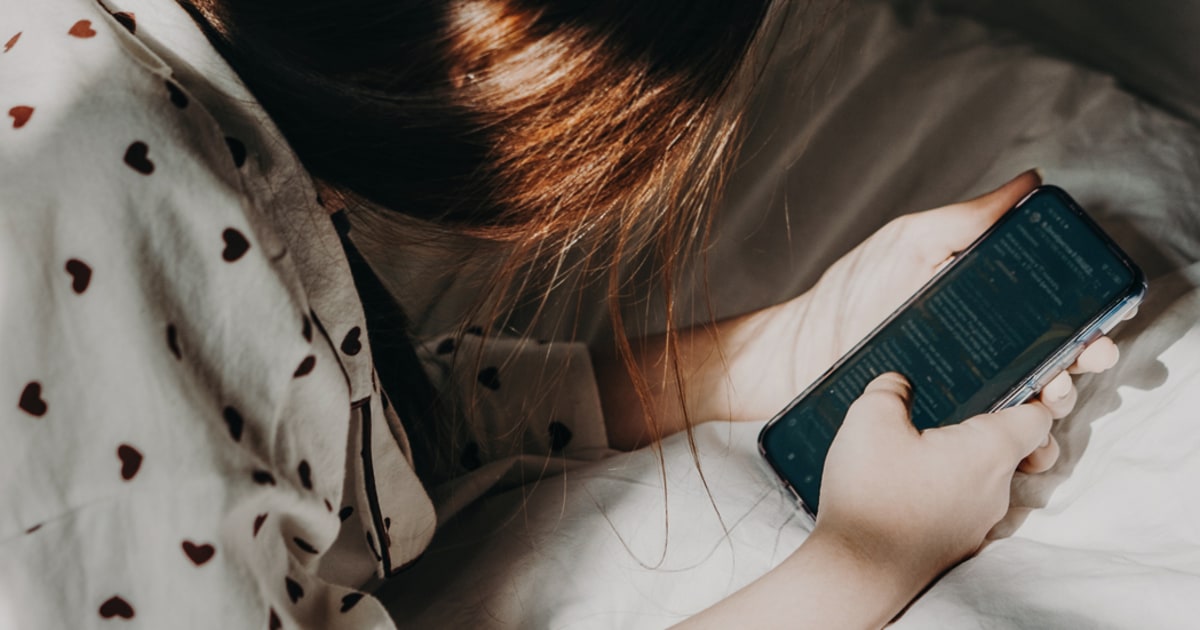

A top psychology group is urging technology companies and legislators to take greater steps to protect adolescents’ mental health, arguing that social media platforms are built for adults and are “not inherently suitable for youth.”
Social media features such as endless scrolling and push notifications are “particularly risky” to young people, whose developing brains are less able to disengage from addictive experiences and are more sensitive to distractions, the American Psychological Association wrote in a report released Tuesday.
But age restrictions on social media platforms alone don’t fully address the dangers, especially since many kids easily find workarounds to such limits. Instead, social media companies need to make fundamental design changes, the group said in its report.
“The platforms seem to be designed to keep kids engaged for as long as possible, to keep them on there. And kids are just not able to resist those impulses as effectively as adults,” APA chief science officer Mitch Prinstein said in a phone interview. He added that more than half of teens report at least one symptom of clinical dependency on social media.
“The fact that this is interfering with their in-person interactions, their time when they should be doing schoolwork, and — most importantly — their sleep has really important implications,” Prinstein said.
The report did not offer specific changes that social media companies can implement. Prinstein suggested one option could be to change the default experience of social media accounts for children, with functions such as endless scrolling or alerts shut off.
The report comes nearly a year after the APA issued a landmark health advisory on social media use in adolescence, which acknowledged that social media can be beneficial when it connects young people with peers who experience similar types of adversity offline. The advisory urged social media platforms to minimize adolescents’ online exposure to cyberbullying and cyberhate, among other recommendations.
But technology companies have made “few meaningful changes” since the advisory was released last May, the APA report said, and no federal policies have been adopted.
A spokesperson for Meta, the parent company of Facebook, Instagram and WhatsApp, disputed the assertion that there have not been changes instituted on its platforms recently. In the last year, Meta has begun showing teens a notification when they spend 20 minutes on Facebook and has added parental supervision tools that allow parents to schedule breaks from Facebook for their teens, according to a list of Meta resources for parents and teenagers. Meta also began hiding more results in Instagram’s search tool related to suicide, self-harm and eating disorders, and launched nighttime “nudges” that encourage teens to close the app when it’s late.
Prinstein said more is still needed.
“Although some platforms have experimented with modest changes, it is not enough to ensure children are safe,” he said.
TikTok and X, formerly known as Twitter, did not immediately respond to a request for comment.
Tuesday’s report comes amid broader concern over the effects of social media on young people. In March, Florida passed a law prohibiting children younger than 14 from having social media accounts and requiring parental consent for those ages 14 and 15. California lawmakers have introduced a bill to protect minors from social media addiction. Dozens of states have sued Meta for what they say are deceptive features that harm children’s and teens’ mental health.
And last month, a book was published by social psychologist Jonathan Haidt that argues that smartphones and social media have created a “phone-based childhood,” sending adolescents’ rates of anxiety, depression and self-harm skyrocketing.
The book, “The Anxious Generation: How the Great Rewiring of Childhood Is Causing an Epidemic of Mental Illness,” has been hotly debated. While it has its detractors, it instantly became a bestseller.
Prinstein said that it’s up to technology companies to protect their youngest users, but parents can also help. He recommended all devices in a family’s household go on top of the refrigerator at 9 p.m. each night to help kids — and parents — get the amount of sleep they need. He also said there is no harm in limiting or postponing a child’s use of social media.
“We have no data to suggest that kids suffer negative consequences if they delay social media use, or if their parents set it for half an hour a day, or an hour a day,” he said.
“If anything, kids tell us, anecdotally, that they like to be able to blame it on their parents and say, ‘Sorry, my parents won’t let me stay on for more than an hour, so I have to get off,’” he added. “It kind of gives them a relief.”
Media
More than mere media bias: How New York prosecutors see Trump's scheme with the National Enquirer – MSNBC
IE 11 is not supported. For an optimal experience visit our site on another browser.
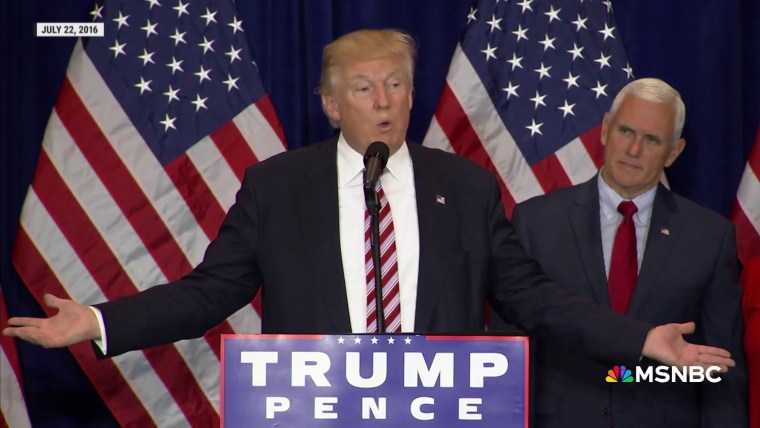

-
Now Playing



More than mere media bias: How New York prosecutors see Trump’s scheme with the National Enquirer
06:15
-
UP NEXT



The real DOJ corruption scandal at the heart of Trump’s criminal trial in New York
11:59
-


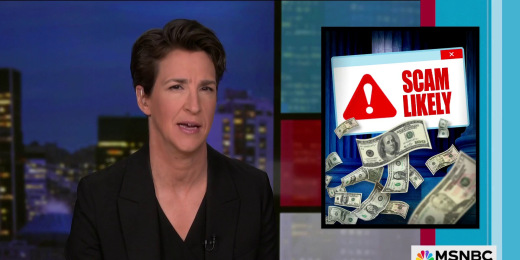
Bank with a checkered past and a deep history with Trump raises red flags
07:23
-


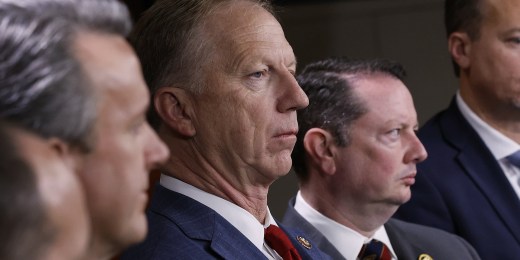
Why Republicans are hiding behind the politics of personality
04:23
-



Media whiffs on the news in Trump’s abortion statement as Dobbs becomes weaponized on global scale
09:17
-


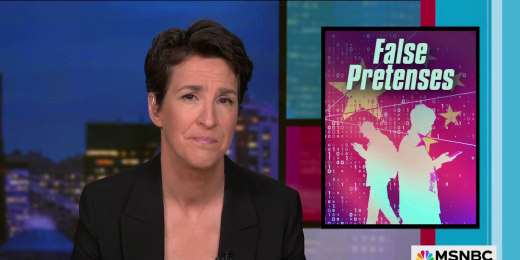
U.S. foes exploit Trump’s divisiveness with fake MAGA accounts; China adopts Russian tactics
10:58
-

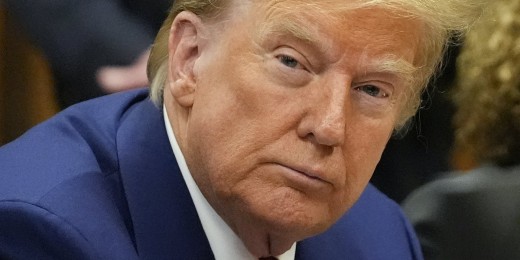
Judge has enough of Trump’s attacks on family members; extends gag order on ‘defendant’s vitriol’
04:59
-

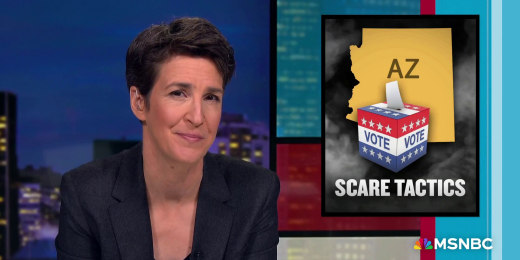
Combat training for election workers? Arizona braces for Trump-addled election deniers
07:59
-

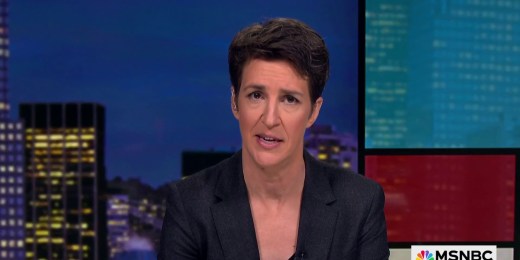
Maddow joins colleagues in objecting to McDaniel for legitimizing Trump, attacking democracy
11:59
-

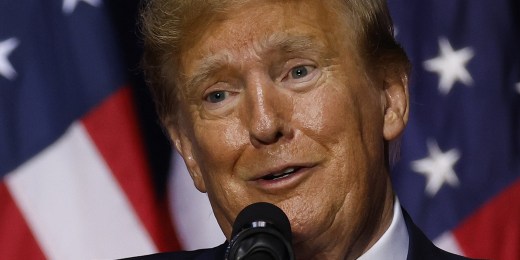
Panicking Trump coming up short for civil fraud penalty; no friends stepping up as deadline nears
07:18
-

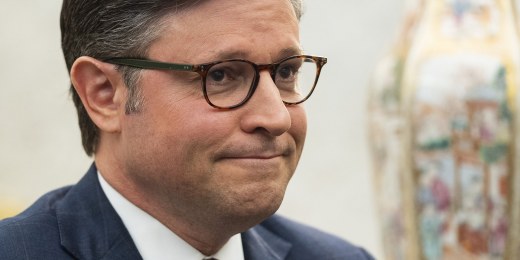
Putin flexes expansionist muscles as GOP stalling starves Ukraine of military aid
04:25
-

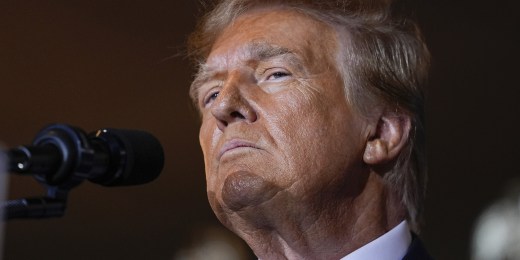
How pro-Trump election officials could make sure your vote doesn’t count
08:19
-


How Russia duped two Republicans with propaganda laundered through fake news sites
03:54
-

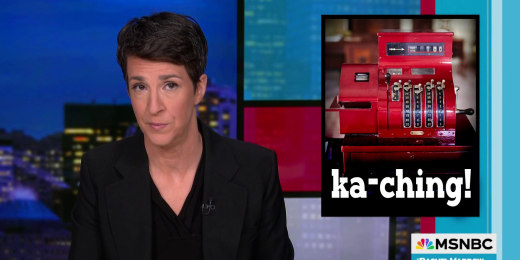
‘Massive national security risk’: Trump financial desperation makes access to U.S. secrets dangerous
04:22
-

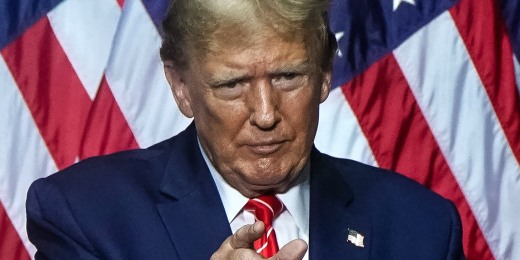
‘Everything’s for sale’: Trump’s TikTok flip-flop follows disturbing pattern
11:46
-

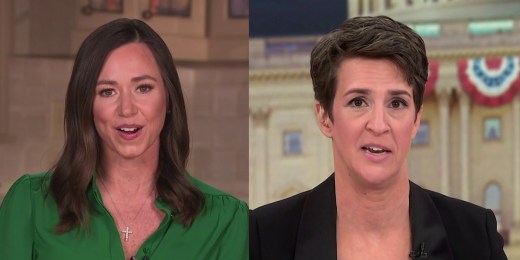
Maddow calls out glaring contradiction in Katie Britt’s GOP response
03:13
-

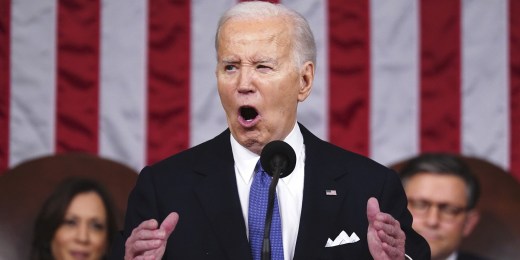
‘Incredibly aggressive’: Biden delivers energized State of the Union
10:39
-

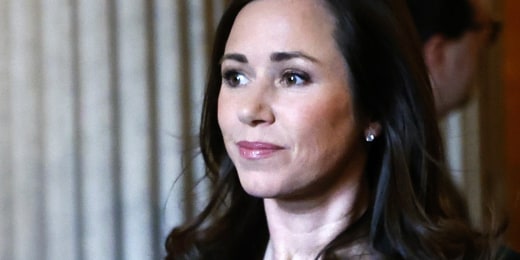
Who is Senator Katie Britt? GOP taps Alabama senator with reproductive rights in spotlight
10:43
-

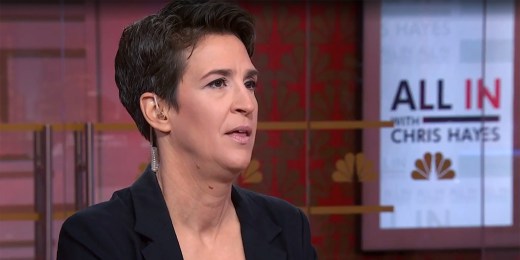
Maddow: This election is a choice ‘between having a democracy and not’
08:37
-

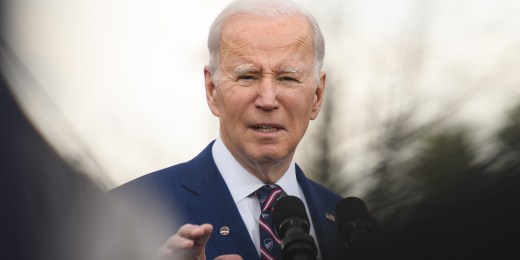
Democrats see opportunities for Biden to take back North Carolina in 2024
08:26
-
Now Playing



More than mere media bias: How New York prosecutors see Trump’s scheme with the National Enquirer
06:15
-
UP NEXT



The real DOJ corruption scandal at the heart of Trump’s criminal trial in New York
11:59
-



Bank with a checkered past and a deep history with Trump raises red flags
07:23
-



Why Republicans are hiding behind the politics of personality
04:23
-



Media whiffs on the news in Trump’s abortion statement as Dobbs becomes weaponized on global scale
09:17
-



U.S. foes exploit Trump’s divisiveness with fake MAGA accounts; China adopts Russian tactics
10:58
Media
The boomer pause: the sign that shows you should really get off social media – The Guardian
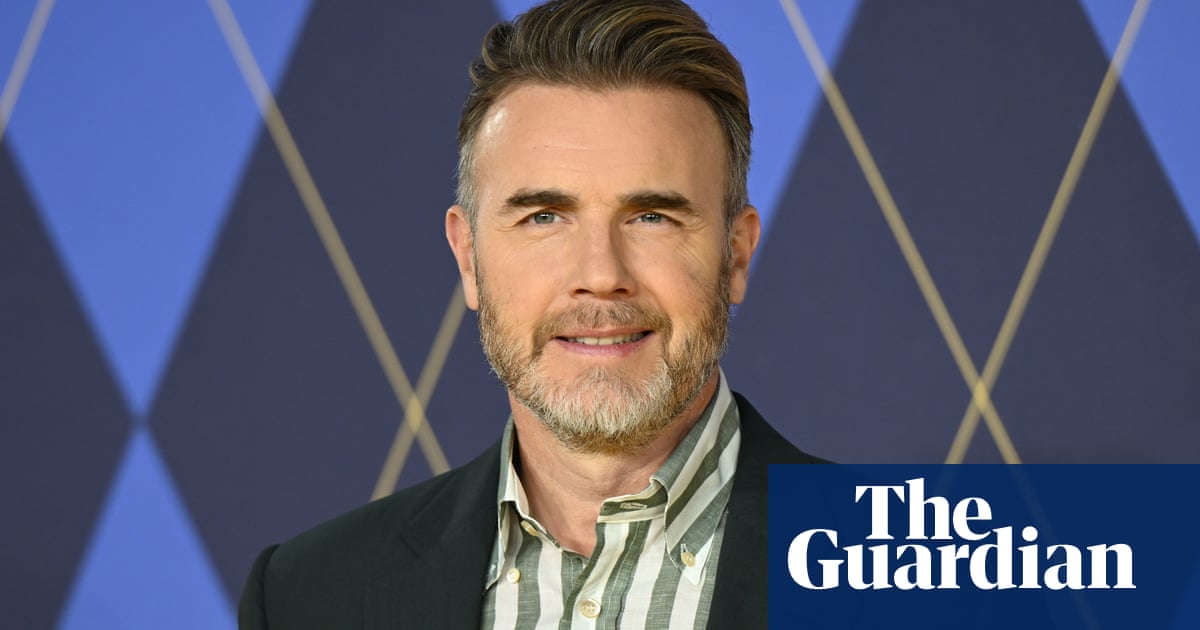

Name: The boomer pause.
Age: A split second.
Appearance: An uncomfortably long break.
Does it refer to an entitled pause between statements to show that you, a boomer, own the room? Not quite: it refers to that awkward moment of silence between hitting “record” and speaking that boomers leave when they film their social media posts.
I’m not sure I understand. It’s like the millennial pause, but longer.
Wait – the millennial pause? A term, coined in 2021, for the telltale split-second pause millennials leave before speaking, because they came of age before TikTok.
And the boomer pause is longer, because boomers are even older? Exactly. Like a long pause before and after speaking.
So it’s a pause indicating age-related technological ineptitude? It’s more than that.
With an added note of self-satisfied indifference about how you come across? That’s part of it, I guess.
And a studied refusal to get to grips with even the most basic and user-friendly editing features? It’s just being a boomer, really.
Would you happen to have a popular example of the phenomenon to hand? Yes: Gary Barlow.
From Take That? That’s the one. On the TikTok account of his wine range, Barlow recently filmed himself grinning in front of a vineyard.
Gary Barlow has a wine range? Keep up. The clip, which has since gone viral, may be transcribed thus: (IMMENSE PAUSE). Barlow: “This is my idea of a very nice day out.” (SECOND IMMENSE PAUSE). End of video.
A boomer pause? “I thought my phone had frozen” was one of the many comments below the post.
Maybe he’s inserting a deliberate pause to … To what?
… to capture your attention. TikTok doesn’t work like that, grandad.
Anyway, I hate to break it to you, but Gary Barlow isn’t a boomer. Are you kidding? He has his own wine range, and homes worth millions in London, Oxfordshire and Santa Monica.
Barlow was born in 1971. The generally acknowledged boomer cutoff is 1964. He is technically Gen X. The boomer pause is down to the length of the gap, not the age of the pauser.
So Kylie Jenner could leave a boomer pause? She could, but she wouldn’t.
Do say: (After counting to five slowly in your head) “Hi, everybody!”
Don’t say: “I am pushing the button! It just keeps flashing this … oops, I think we’re on. Hi, everybody!”
-
Media20 hours ago
DJT Stock Plunges After Trump Media Files to Issue Shares
-
Business19 hours ago
FFAW, ASP Pleased With Resumption of Crab Fishery – VOCM
-
Media19 hours ago
Marjorie Taylor Greene won’t say what happened to her Trump Media stock
-
Business20 hours ago
Javier Blas 10 Things Oil Traders Need to Know About Iran's Attack on Israel – OilPrice.com
-
Art21 hours ago
It’s Time to Remove Father Rupnik’s Art – National Catholic Register
-
Media18 hours ago
Trump Media stock slides again to bring it nearly 60% below its peak as euphoria fades – National Post
-



 Politics20 hours ago
Politics20 hours agoIn cutting out politics, A24 movie 'Civil War' fails viewers – Los Angeles Times
-
Art22 hours ago
Pinot & Pottery Bubble Art – Castanet.net




